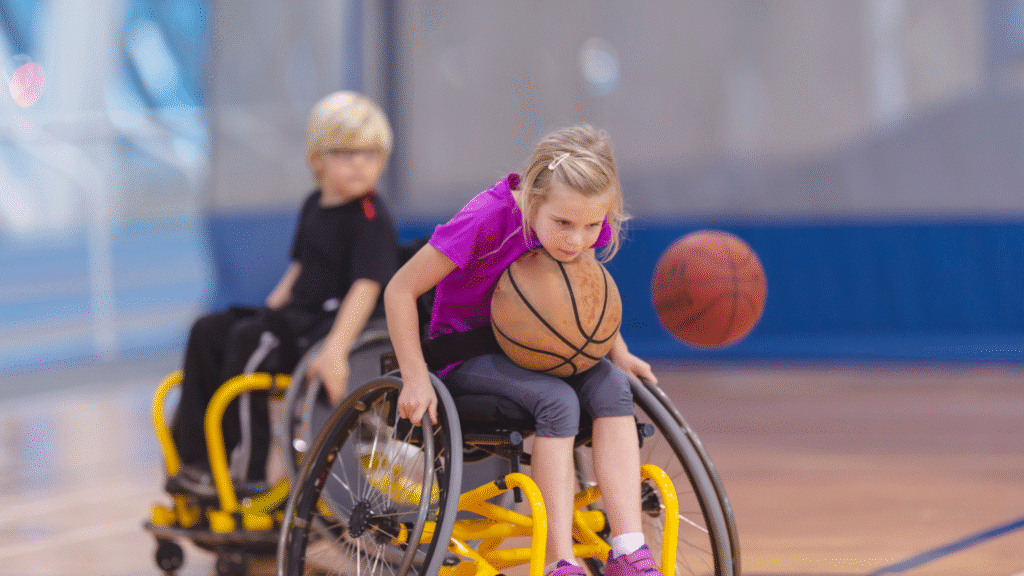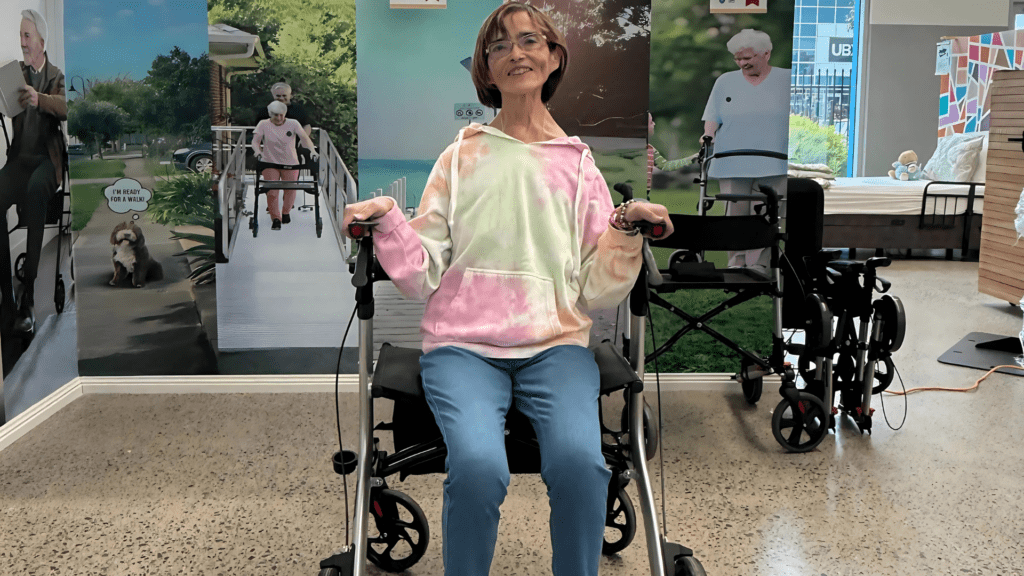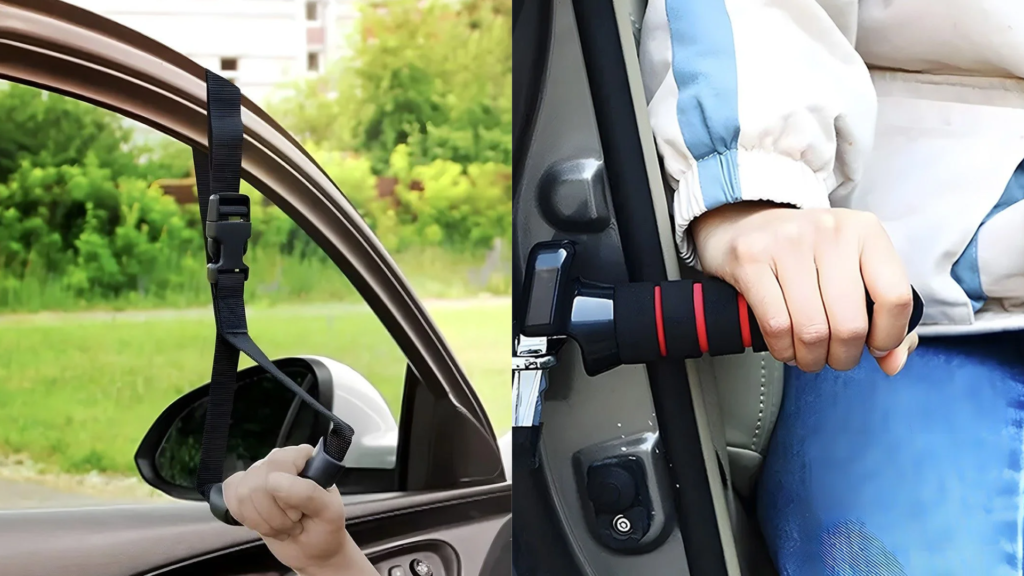Mobility plays a vital role in the independence and confidence of children with disabilities. For many young children, a paediatric wheelchair is more than just equipment—it’s a tool that enables exploration, learning, and participation in daily life. Through appropriate mobility support, children gain freedom, build confidence, and experience a sense of empowerment that can shape their future.
At Care With Us Australia, we provide a wide range of paediatric wheelchairs designed to meet the unique needs of each child, including options like GrowMate Paediatric Wheelchair for growing children.
Introduction: Empowering Children Through Mobility
Children thrive when they can move freely and interact with their environment. A paediatric wheelchair provides this essential independence, helping children participate in school, play, and social activities. Beyond physical mobility, these wheelchairs enhance self-esteem, improve posture, and enable engagement in everyday life.
Parents, carers, and allied health professionals often witness remarkable transformations when a child gains access to a wheelchair tailored to their needs.
The Role of Paediatric Wheelchairs in Daily Life
Paediatric wheelchairs are designed specifically for children’s sizes, weights, and growth patterns. They offer:
- Comfort for extended use at home or school.
- Support for posture and spinal alignment.
- Lightweight and foldable designs for easier transport.
- Tilt-in-space options to allow resting or pressure relief.
These features ensure children can participate fully in family activities, school routines, and social events, fostering independence and inclusion.
Heartwarming Stories of Children Gaining Independence
Every child’s journey is unique. Here are a few inspirational examples:
Emma, 7, and her folding paediatric wheelchair
Emma struggled to keep up with her classmates due to mobility limitations. Her lightweight folding paediatric wheelchair allowed her to move around school independently. She now participates in group activities and sports programs with ease, improving her confidence and social connections.
Liam, 5, using a tilt-in-space paediatric wheelchair
Liam experienced fatigue during extended classroom sessions. His tilt-in-space wheelchair provided posture support and allowed him to rest safely while staying engaged in lessons. His teachers noted increased attention span and enthusiasm for learning.
Sophie, 10, with a custom paediatric wheelchair
Sophie required specific support for her posture and mobility needs. Her custom paediatric wheelchair was tailored by allied health professionals and her family, giving her the comfort and independence she needed for daily activities at home and in the community.
These stories highlight how the right mobility support can transform a child’s day-to-day experiences and opportunities.
Choosing the Right Wheelchair: Factors and Features
Selecting the best wheelchair for a child requires careful consideration:
- Age, size, and growth potential
- Weight capacity and portability needs
- Specific health or postural requirements
- Features such as tilt-in-space, adjustable seating, and foldable frames
- Collaboration with occupational therapists or allied health professionals
Options include folding paediatric wheelchairs, lightweight designs, tilt-in-space models, and custom-built wheelchairs. Each option ensures children receive the right support for their abilities and lifestyle.


NDIS Support and Funding for Paediatric Wheelchairs
Families in Victoria can access NDIS-funded paediatric mobility equipment to support their child’s independence. NDIS provides funding for:
- Standard and custom paediatric wheelchairs
- Assistive wheelchairs for young clients
- Home trials and allied health assessments
NDIS funding ensures families can obtain suitable mobility solutions without financial strain, supporting both daily activities and long-term development.
How Allied Health Professionals Assist in Mobility Solutions
Occupational therapists, physiotherapists, and allied health professionals play a crucial role in matching children with appropriate mobility aids. They provide:
- Assessment of posture and mobility needs
- Recommendations for wheelchair features and adjustments
- Training for children and carers in safe use
- Guidance for NDIS applications and equipment funding
Working with allied health professionals maximizes the effectiveness of mobility solutions, ensuring children thrive physically, socially, and emotionally.
Conclusion: Celebrating Progress and Possibilities
Paediatric wheelchairs do more than provide mobility—they empower children to explore, learn, and participate fully in life. With the right support, children experience increased independence, confidence, and opportunity. Families, carers, and allied health professionals all play a part in helping children reach their potential through thoughtful mobility solutions.
Explore our range of paediatric wheelchairs or request a home trial to find the best solution for your child.



FAQs
Q1. What is a paediatric wheelchair?
A paediatric wheelchair is a mobility aid designed specifically for children, offering appropriate size, weight support, and features like tilt-in-space, foldable frames, or custom adjustments.
Q2. How do I choose the right wheelchair for my child?
Consider age, size, posture support needs, mobility requirements, and lifestyle. Consulting with an occupational therapist or allied health professional ensures the best choice.
Q3. Can paediatric wheelchairs be funded through NDIS?
Yes, many paediatric wheelchairs and assistive mobility equipment are NDIS-funded in Victoria, including home trials, custom solutions, and standard models.
Q4. What are the benefits of tilt-in-space or foldable wheelchairs?
Tilt-in-space wheelchairs provide posture support and allow safe resting, while foldable models enhance portability and ease of transport.
Q5. How do allied health professionals assist with paediatric wheelchairs?
They assess the child’s mobility and posture, recommend appropriate features, provide training for safe use, and assist with NDIS funding applications.
Q6. Can children use custom paediatric wheelchairs?
Yes, custom wheelchairs are tailored to the child’s growth, health needs, and daily activities, ensuring comfort, safety, and independence.



